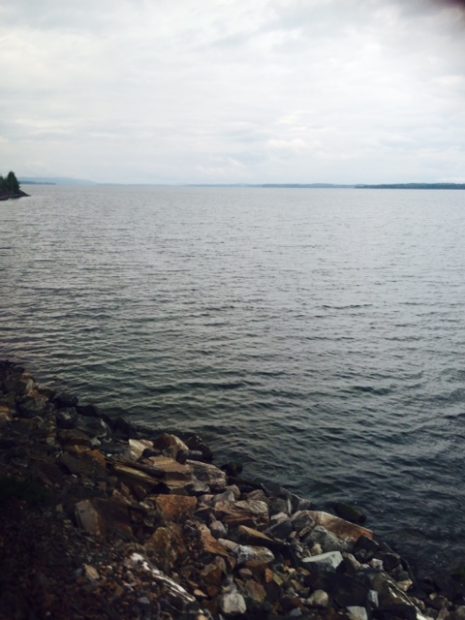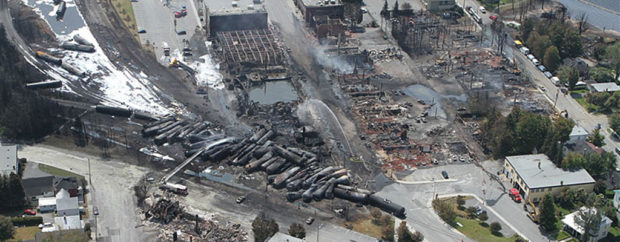We have much more to do and your continued support is needed now more than ever.
New York Train Derailment Highlights Oil-by-Rail Threat to Lake Champlain Region
A train derailment near the banks of Hudson River in New York highlights the continued risk of dangerous crude oil cars that run along the banks of Lake Champlain and the Hudson River. The accident shows it is a matter of when – not if – an oil-by-rail accident along the aging rail lines that skirt Lake Champlain will damage our communities, wildlife and water.
Fortunately, no one was seriously hurt in the derailment that took place on Tuesday and hazardous materials (which were not oil) do not appear to have been spilled in any significant quantity.
The Threat of Oil-by-Rail

As National Wildlife Federation and our affiliates, Environmental Advocates of New York and Vermont Natural Resources Council reported, each week tens of millions of gallons of explosive crude oil from North Dakota could be moving along Lake Champlain and the Hudson River destined for Albany, where it is loaded onto tankers and shipped to refineries or elsewhere.
Not every derailment proves to be as lucky as this week’s. In 2013, the downtown of Lac Mégantic, Quebec was decimated when a 72 car oil train careened into the center of town, causing over 60 cars to derail and resulting in an explosion that killed 47 people and polluted the nearby Chaudiere River with thousands of gallons of oil. Serious fish deformities – at rates of almost half of fish in the affected area – resulted after the spill. The rebuilding of the devastated lakeside town will take years.
The recent accident in New York highlights the need to reduce and eliminate the risk of an oil-by-rail disaster to Lake Champlain, the Hudson River and the communities and wildlife along these treasured waters. We may not be as lucky next time.

Working to Protect Lake Champlain and the Region
National Wildlife Federation and our partners are working to protect Lake Champlain, the Hudson River and the Adirondack region from this threat. We are:
- Working to stop a proposed off-loading facility upgrade at the Global Partners port in Albany that would allow heavy, toxic tar sands oil crude to be carried to the facility. Allowing this upgrade would likely increase the overall amount of oil moving through the region and add nearly impossible tar sands oil to the mix. The NY Department of Conservation (DEC) is listening to our concerns, and has taken steps towards heightened review, but we are determined to ensure the NY DEC says no to this proposed upgrade.
- Working to stop a proposed oil pipeline project – the Pilgrim Pipeline – that would increase the amount of oil that could be shipped out of Albany and toward refineries in the mid-Atlantic, in turn increasing the amount of oil that can be shipped in. Saying no to this pipeline will help stop future expansion of oil by rail transport through the area. We have achieved a commitment from the NY DEC to do a thorough review of this pipeline that greatly increases the chances the pipeline will be denied.
- Asking Congress to take action to ban oil-by-rail transport along the aging line on Lake Champlain and the Hudson River. While we recognize this in an uphill climb in the current political environmental, NWF has gathered over 80 business, conversation, tourist and other concerned organizations and individuals to send a letter calling on New York and Vermont’s Congressional delegation to take action to stop this threat. We will continue to push for federal action to make our region safe.
Take action to help protect wildlife in the North Country from oil trains by retweeting the following!
.@NYSDEC protect North Country #wildlife from oil trains. Reject Pilgrim Pipeline & Global Partners expansion! https://t.co/yqEg66S7mf pic.twitter.com/xHWoRzYYs3
— Wildlife Action (@wildlifeaction) March 13, 2017






















